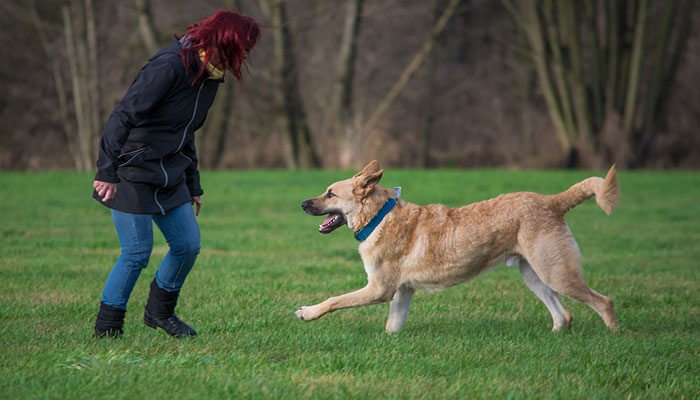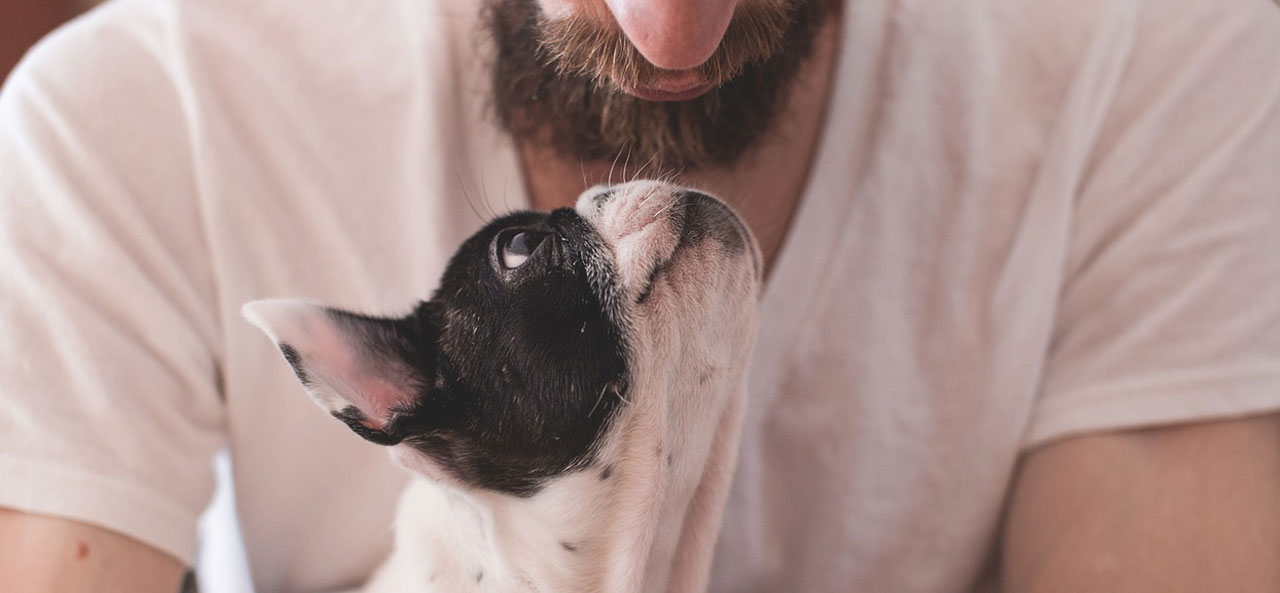Recent studies show that speaking to your dog as you would to a baby, has positive results. We’re all guilty of speaking to our furry little friends, in a high pitched tone, we simply can’t help ourselves. Our furry little babies really do know how to pull on our heart strings, their cute, innocent faces make us go all gooey inside and we can’t resist speaking to them how you would to a small child or baby.
Often, we ask our dogs “Who’s a good boy?” or “Who’s a good girl?” Thus, sending them into a complete meltdown with excitement! Anyone watching would most likely think that we’re barking mad (excuse the pun) but we simply can’t help ourselves. Well, there is a logical reason as to why we’re drawn to speak to our pooches this way, and this is mainly because of the profound affect it has on the bond between you both.
Recent studies conducted at the University of York; suggest that the humans tone and their word choice can affect the social bonding between both human and dog. There have been lots of other studies, where by scientists have played a human’s voice to the dog and monitored the dog’s response. This experiment differs somewhat. The recent study had both the dog and human in the same room, which allowed the behaviour of the dog to be monitored when they were spoken to via ‘dogs speak’ and then waited to see whether the dog chose to spend any time with that particular human.
The study was conducted in the following way:
There were four different kinds of speech tests and all 4 tests were used with a variance in tone. Ranging from high-pitched to regular and then the words used varied from dog-friendly to non-dog-friendly.


Below are the 4 combinations of the above two factors.
- Dog related words such as “What a good boy” with dog-directed speech.
- Non-dog related words (I must clean the kitchen) with adult-directed speech.
- Non-dog related words used with Dog-directed speech.
- Dog-related words used with Adult-directed speech.
The researchers purposely mixed up the 3rd and 4th tests, so they could carefully pinpoint, whether it was the high-pitched tone or the specific dog-related words used, that grabbed the dogs attention.
During the time the participants conducted various sentences, the dog’s attention span was measured and then afterwards the dog picked their favourite speaker. The results were rather interesting. The research indicated that the dogs favoured the participants that used dog-related speech with dog-direct words; more than participants that used non-dog related words with adult-directed speech. The study also showed that the dogs had no preference to any of the participants when they mixed and matched the words used and their tone, this indicated that the dog prefers to hear both dog-related words and dog-related speech.
So, to conclude, this experiment indicates that we’re not all completely bonkers. Talking to your dog with baby speech does actually grab their attention and thus creates a stronger bond.




